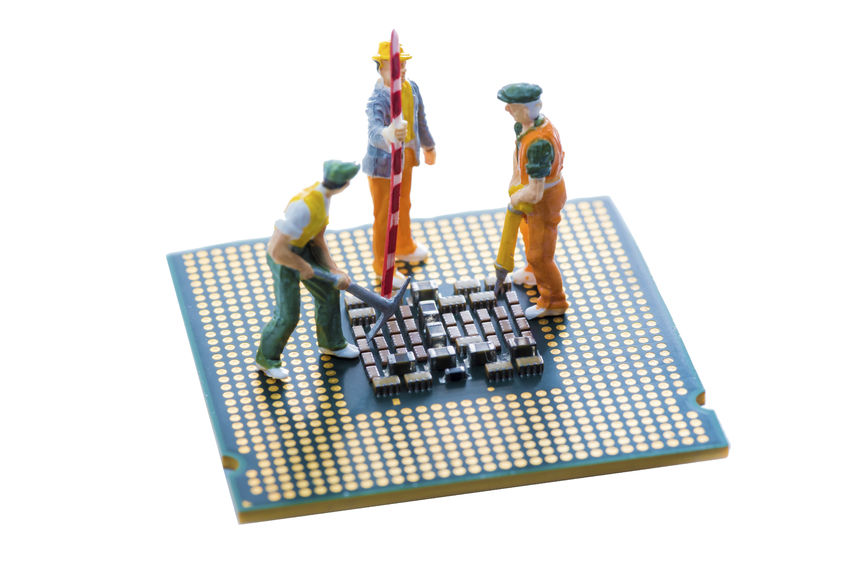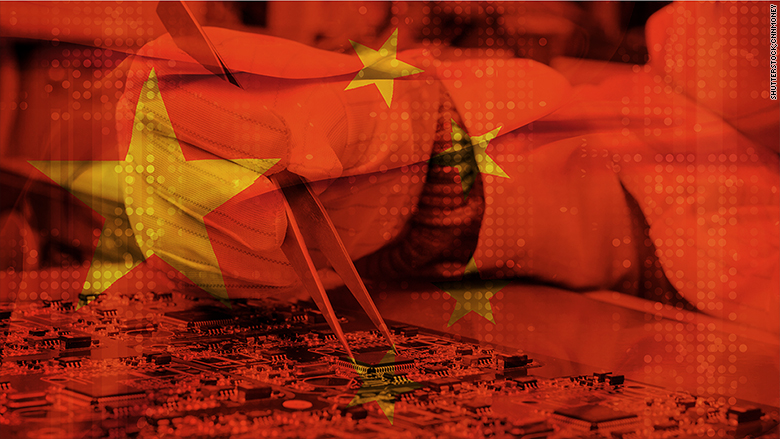China Moving Beyond Counterfeit Technology
"The recent ZTE incident made us see clearly that no matter how advanced our mobile payment is, without mobile devices, without microchips and operating systems, we can't compete competently [with the United States, in advanced technology]."
Pony Ma, chief executive, Tencent Holdings (Chinese Internet giant)
"Self-reliance is the foundation for the Chinese nation to stand firmly in the world, while independent innovation is the only way for us to climb the peak of the world's science and technology."
Chinese President Xi Jinping
"After the ZTE incident, we realize how important it is to be able to make chips on our own."
"[The chipsets Gree Electric Appliances develops may not be as good as the American ones] but we've got to have a Plan B."
Tang Xiaohui, senior executive, Gree smartphone and chip development
 |
| Image credit: 123RF |
Traditionally, China has found it to be enterprisingly successful to leapfrog over other nations' inventions, using their technology on which to base their own, and in this way cutting out a laborious, long route to designing and owning their very own innovative expertise. China has built its runaway success in producing technology-based products on the fundamental technology base available resulting from mostly American breakthroughs.
Copying formulae that have been copyrighted has created tensions between China and the United States for the production giant's penchant for industrial spying to take advantage of the work of others. But nothing has stopped the juggernaut that is Chinese entrepreneurial expertise from expanding upon the work of others. In China, high-speed trains take people everywhere in record-speed time. With their Chinese-produced smartphones people buy and pay for everything they need.
China preened itself on its technological smarts, ahead of the world in just about every indice of technological development. And then the other shoe dropped. The Chinese corporation employing 75,000 workers, the No. 4 producer of telecom gear internationally, had violated U.S. sanctions and agreed to pay the $1-billion fine imposed by the Trump administration which also insisted that American monitors be permitted access to its headquarters.
This proud symbol of Chinese technological progress and engineering techniques as a result will be permitted to purchase U.S.-made microchips, software and other tools on which its entire enterprise has been built. The incident has brought the stark reality of Chinese dependence on American technology to enable it to boost its own, to stunning realization and acknowledgement. "We realized that China's prosperity was built on sand", admitted Dong Jielin, adjunct professor at the Research Center for Technological Innovation at Tsinghua University in Beijing.
Zte Smartphones
Because of the ZTE exposure to reality, a new atmosphere of urgency has gripped China forward in a bid to increase its technological abilities. Its Made in China 2025 initiative struggles with failing trade relations between China and the United States. ZTE's $17-billion 2017 revenue spurs the Chinese leadership to ensure the nation achieves self-reliance. Beijing is wedded to its vision of national rejuvenation where innovation and entrepreneurship have become national policies backed by government finances in enormous investments at the ready.
Gree Electric Appliances of Zhuhai, as the world's largest industrial air conditioner manufacturer of residential units, began designing its own chips three years ago for use with air conditioners in an effort to reduce its costs and control its supply chain. The corporation is prepared to spend $7.8 billion on chip research and development in the next three years. As China moves upwards and onward on its independent and self-reliant future in technology it now resorts to the authenticity of conducting its own research and development.

Labels: China, Legitimacy, Technology, Trade, United States
0 Comments:
Post a Comment
<< Home